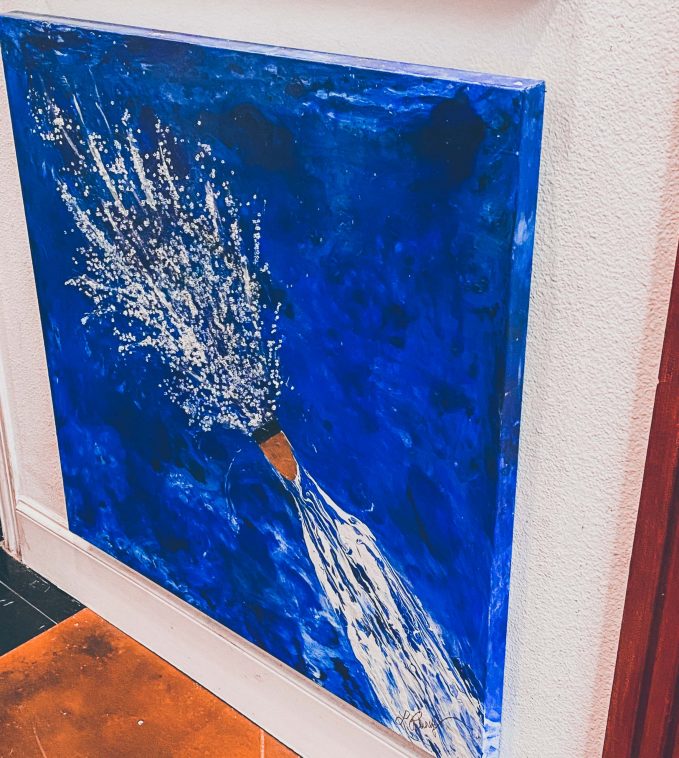
Wine X Staff
Wine X Online Edition
Ever had this scenario play out? You go to a hip new restaurant and the sommelier helps you pick out a delicious bottle of wine to enjoy your meal. You like it so much you want to get some to take home. You then go to your local wine shop and ask if they have any of that particular bottle. They respond with “Oh, that’s a restaurant only-wine, we can’t get any to sell retail.” No luck.
Here’s another scenario: you taste a wine in a flight at a local wine bar. You love it, and so you take a picture of the bottle to make sure you remember it. Fast forward a few days, and you’re in the wine aisle at the grocery store but can’t seem to find the bottle. You look online and you find it…at a wine store across the country. Oh well. You grab a different wine from the store and move on.
 If you’re a relatively frequent wine drinker, you may have had this happen, and if you’re anything like this writer, you sometimes wonder why. And if you’re REALLY like this writer, you wonder in the existential sense, wasting way too much time trying to figure out why the fuck the wine industry delights in keeping products OUT of its consumer’s hands. Why, oh why, do we feel the need to make something seem so exclusive that a simple $20-30 bottle of wine literally isn’t allowed to be at a grocery store, or on a retail shelf at all? This is the segregation of wine.
If you’re a relatively frequent wine drinker, you may have had this happen, and if you’re anything like this writer, you sometimes wonder why. And if you’re REALLY like this writer, you wonder in the existential sense, wasting way too much time trying to figure out why the fuck the wine industry delights in keeping products OUT of its consumer’s hands. Why, oh why, do we feel the need to make something seem so exclusive that a simple $20-30 bottle of wine literally isn’t allowed to be at a grocery store, or on a retail shelf at all? This is the segregation of wine.
If you have dreams of being a winemaker, you better decide which kind of winemaker you want to be ASAP. If you want to make wine that is accessible to all Americans at a good price, congratulations. You have picked a noble task to aspire to. And, you have also relegated yourself to the grocery or chain liquor store, or maybe a chain restaurant.
Want to make a wine that tastes of place, tastes of terroir and the soil from whence it came? Congratulations, you have also picked a noble task. And you will forever be on hipster wine lists at restaurants and wine bars, or independent wine shops, and most of middle America will never know your existence except when they visit a hipster city to try and get some culture. And then, when they go looking for your wine at home, they will be found wanting. Don’t believe this is the truth? See for yourself…go to a grocery store, then go to a hipster restaurant or wine bar, and you MIGHT find one or two bottles that are the same. And if you were to tell that restaurant that, say, Safeway had the same wine on their shelf, they would probably pull it off their list the next day.
Why do we segregate wines in this way?
 That question cannot be answered, at least not by me. Even pondering who started the segregation is a chicken-or-egg argument. Was it the cult Napa producers who started it with years-long waiting lists for a coveted bottle? Or was it the natural wine fanatics whose products were only allowed to be sold at natural wine shops? Was it started by industry giants who wanted to market one product for restaurants and one for grocers, thereby doubling the number of products they had out there? Smarter people than me might know, but I do not.
That question cannot be answered, at least not by me. Even pondering who started the segregation is a chicken-or-egg argument. Was it the cult Napa producers who started it with years-long waiting lists for a coveted bottle? Or was it the natural wine fanatics whose products were only allowed to be sold at natural wine shops? Was it started by industry giants who wanted to market one product for restaurants and one for grocers, thereby doubling the number of products they had out there? Smarter people than me might know, but I do not.
Most products are segregated in a way: some clothing designers can be bought at Gap, others at Nordstrom. But anyone can walk into a store and buy them if they have the money. The wine industry doesn’t think in this way, with allocations, restaurant-only wines, wines that are out of touch but for the lucky few. It’s a strange business model and one that is doomed to fail.
The wine industry constantly argues over how to get Millennials and Gen X’ers to buy their products and wonders why they aren’t latching on just like their parents did to particular brands, styles, or grapes. As a Millennial myself, I can tell you that the wine industry is a complicated, annoying, and terribly outdated place. And I work in the industry.
Other Millennials see this about the wine industry too, but they don’t have the time or energy to waste to try and figure out why to buy this Chardonnay at Safeway instead of that Chardonnay at “Natty Wines’R’Us”. So, what do they do? They buy White Claw instead; after all, who is going to stop them from buying White Claw?




